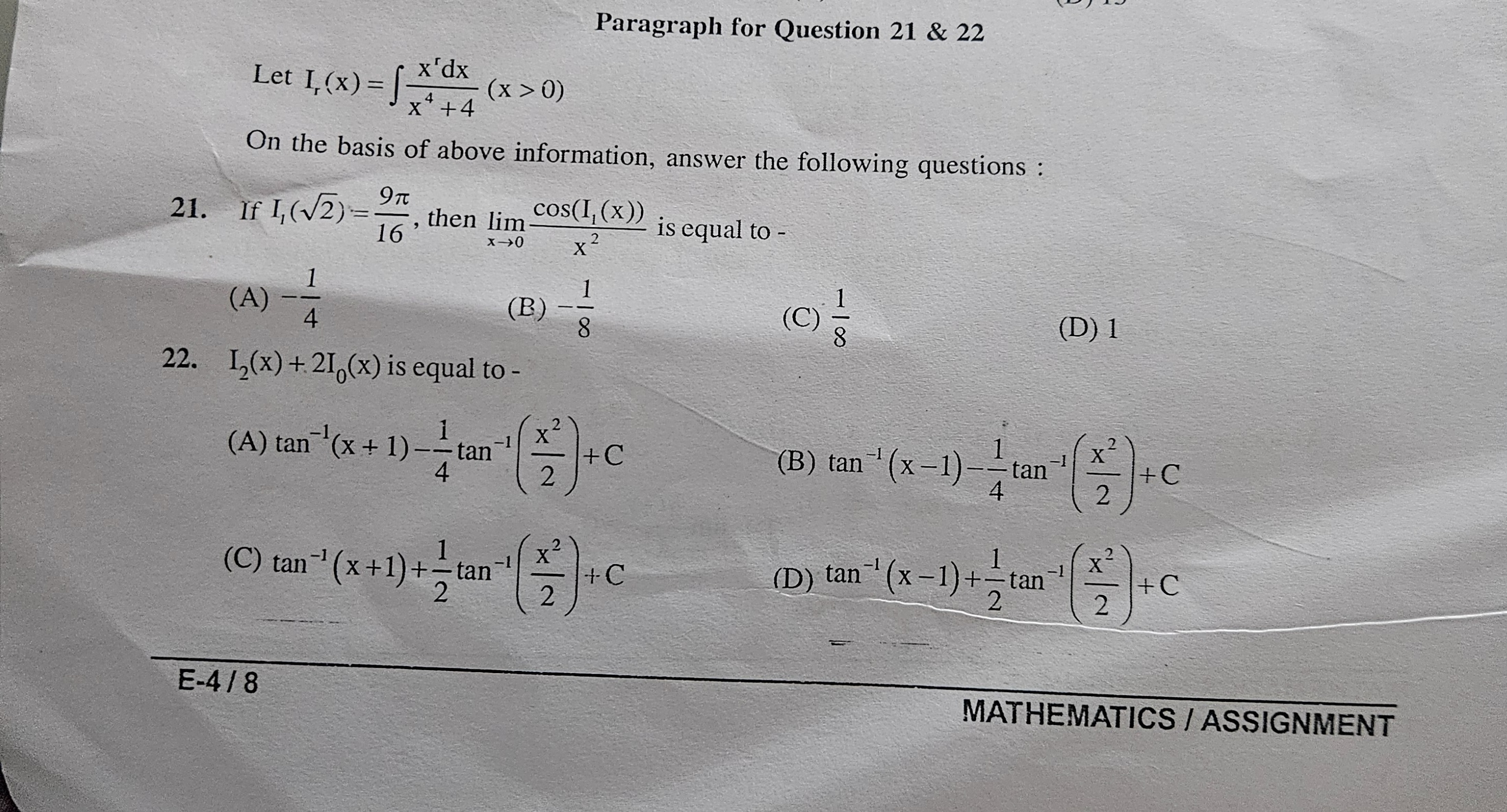Question
Question: If $I_1(\sqrt{2}) = \frac{9\pi}{16}$, then $\lim_{x\to 0}\frac{cos(I_1(x))}{x^2}$ is equal to -...
If I1(2)=169π, then limx→0x2cos(I1(x)) is equal to -

−41
−81
81
1
−81
Solution
-
Evaluate I1(x): I1(x)=∫x4+4xdx Let u=x2, then du=2xdx, so xdx=21du. I1(x)=∫u2+421du=21∫u2+22du Using the standard integral formula ∫x2+a2dx=a1tan−1(ax)+C: I1(x)=21⋅21tan−1(2u)+C=41tan−1(2x2)+C.
-
Determine the constant C: Given I1(2)=169π. Substitute x=2 into I1(x): I1(2)=41tan−1(2(2)2)+C=41tan−1(22)+C=41tan−1(1)+C. Since tan−1(1)=4π: I1(2)=41⋅4π+C=16π+C. Equating this to the given value: 16π+C=169π⟹C=168π=2π. So, I1(x)=41tan−1(2x2)+2π.
-
Evaluate the limit: We need to find L=limx→0x2cos(I1(x)). As x→0, I1(x)→41tan−1(0)+2π=0+2π=2π. So, as x→0, cos(I1(x))→cos(2π)=0. The limit is of the indeterminate form 00, so we can use L'Hopital's Rule. L=limx→02x−sin(I1(x))⋅I1′(x). Recall that I1′(x) is the integrand of I1(x), so I1′(x)=x4+4x. Substitute I1′(x): L=limx→02x−sin(I1(x))⋅x4+4x. Simplify by cancelling x (since x=0 in the limit): L=limx→02(x4+4)−sin(I1(x)). Now, substitute x=0: As x→0, I1(x)→2π, so sin(I1(x))→sin(2π)=1. The denominator 2(x4+4)→2(04+4)=8. Therefore, L=8−1.
Alternatively, using small angle approximation: Let y=I1(x). As x→0, y→2π. Let y=2π+δ, where δ=I1(x)−2π=41tan−1(2x2). As x→0, 2x2→0. For small z, tan−1(z)≈z. So, δ≈41⋅2x2=8x2. Now, cos(I1(x))=cos(2π+δ)=−sin(δ). For small δ, sin(δ)≈δ. So, cos(I1(x))≈−δ≈−8x2. The limit becomes limx→0x2−8x2=−81.
